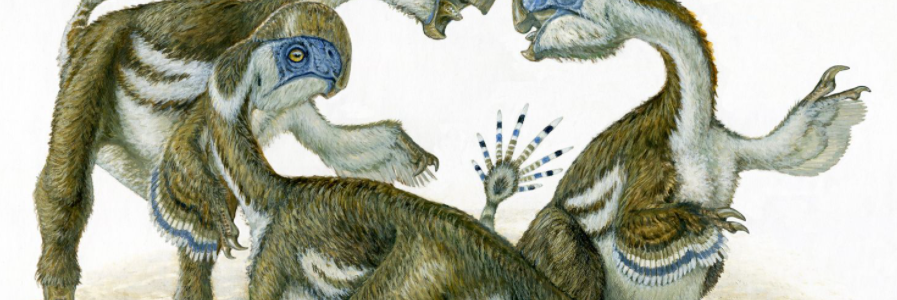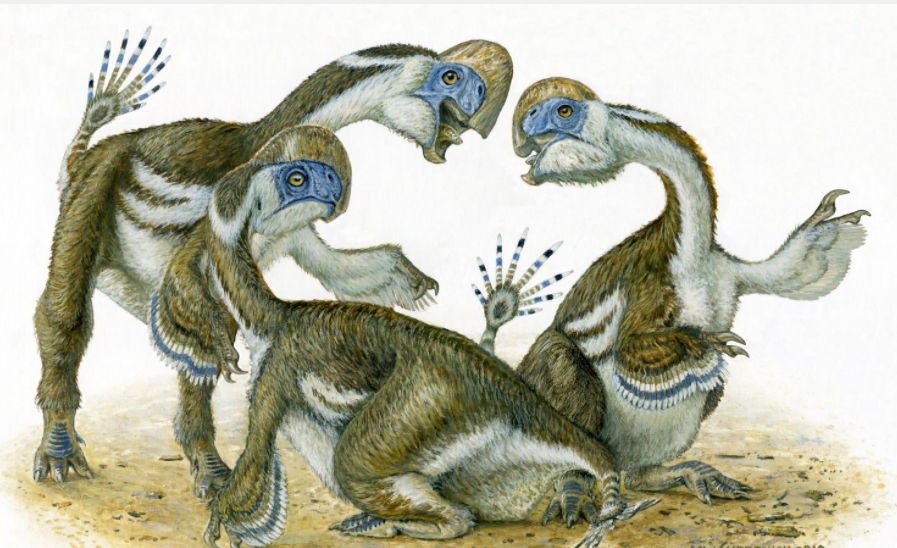
New toothless dinosaur species discovered

A team of researchers from the University of Edinburgh has discovered a new species of toothless two-fingered dinosaur that lived more than 68 million years ago. The animals had a toothless beak similar to the type seen in parrots. Multiple complete skeletons of the new species named Oksoko avarsan were dug up in the Gobi Desert in Mongolia.
The dinosaurs were omnivorous and grew to about two-meters long and had two functional digits on the end of each forearm and had a large toothless beak.
According to the team, the fossils provide the first evidence of digit loss in the three-fingered dinosaur family known as oviraptors.
The discovery that they could evolve forelimb adaptations suggests the group could alter their diets and lifestyles and enabled them to diversify and multiply according to the team.
